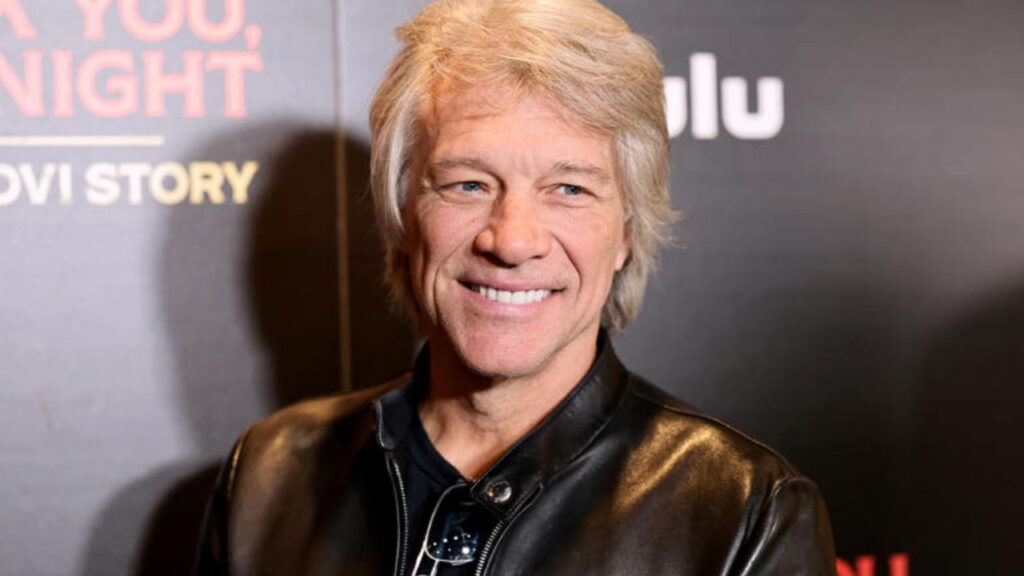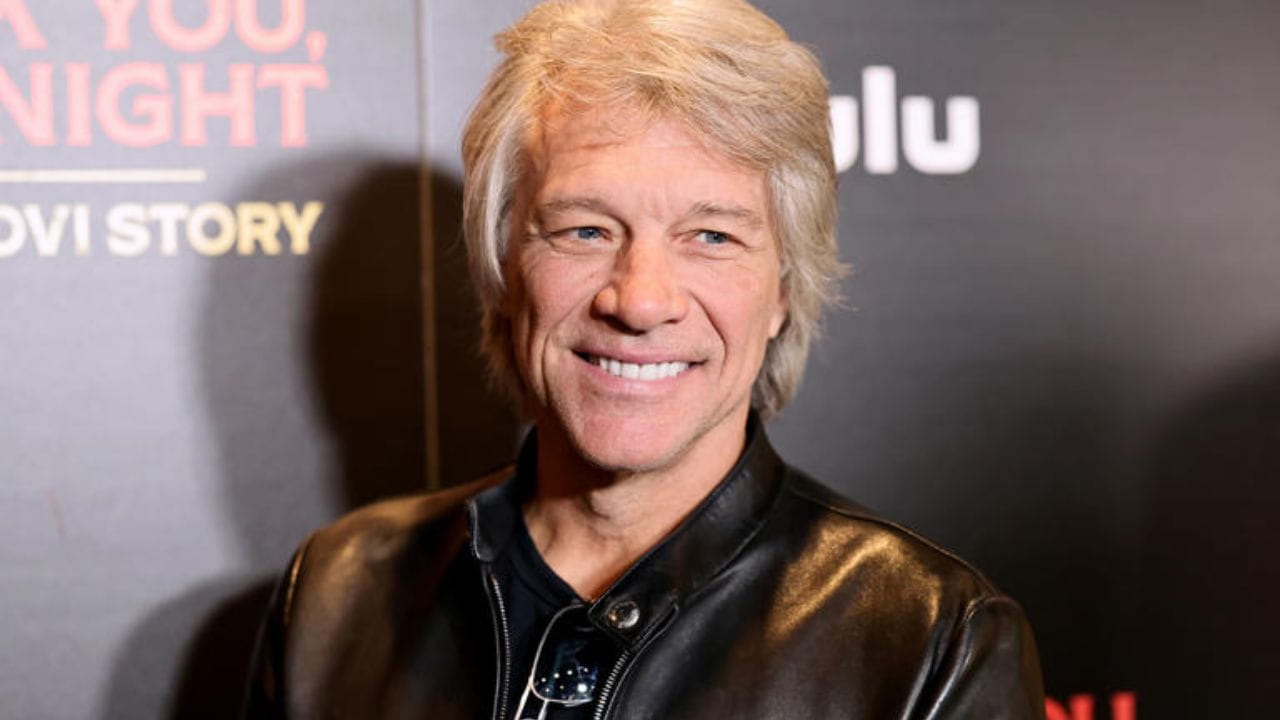Jon Bon Jovi, mental health, suicide prevention, Jon Bon Jovi saves woman, suicide prevention month, mental health awareness, suicide crisis, helping someone in crisis, Jon Bon Jovi Nashville, bridge rescue Jon Bon Jovi
Jon Bon Jovi’s heroic actions in Nashville, talking a woman off a bridge, highlight the power of empathy in suicide prevention. Learn how his intervention is praised by mental health experts and the valuable lessons it teaches about saving lives.

Jon Bon Jovi’s Heroic Act: Talking a Woman Off the Ledge, and Why It Deserves Praise from Mental Health Experts
Jon Bon Jovi, the legendary rock star, is being celebrated not just for his music, but for a heroic act that took place in Nashville recently. In a scene that unfolded on the John Seigenthaler Pedestrian Bridge, Bon Jovi approached a woman standing on the outside of the guardrail, appearing to contemplate ending her life. In less than a minute, Bon Jovi helped her return to safety, saving a life in the process. Mental health experts have since lauded the musician for his actions, emphasizing the broader lessons about suicide prevention that can be drawn from the event.
The Incident: A Brief Overview
The Metropolitan Nashville Police Department shared a video of the event, showing the 62-year-old Bon Jovi approaching the distressed woman alongside a member of his team. While filming a music video, Bon Jovi noticed the woman on the edge of the bridge and intervened without hesitation. In a moment that has inspired many, he engaged in a conversation with her, ultimately bringing her back to safety from the dangerous ledge.
While the details of what Bon Jovi said to the woman are not known, the outcome was clear: a life was saved, and hope was restored. As we consider Bon Jovi’s actions, it’s important to understand the significance of such interventions, especially during Suicide Prevention Month.
The Role of Empathy in Suicide Prevention
Julie Goldstein Grumet, director of the Zero Suicide Institute, remarked that Bon Jovi’s intervention offers a powerful lesson for everyone. “It is everybody’s job to save a life,” she said. While Bon Jovi is a global rock star, the message here is that one does not need to be famous or a mental health expert to help someone in crisis. Empathy and a willingness to listen can make a profound difference.
Grumet emphasized that anyone, anywhere, can offer support to someone who is struggling. Often, people in crisis need to hear that their life matters and that someone is there to listen. By simply offering empathy and connection, individuals can make an impact that may prevent suicide. Bon Jovi demonstrated this by stepping in, showing that the power of human connection can be life-saving.
The Importance of Suicide Prevention Month
This incident occurred during September, which is Suicide Prevention Month. It serves as a reminder of the importance of conversations around mental health and suicide. Dr. Christine Yu Moutier, the chief medical officer at the American Foundation for Suicide Prevention (AFSP), noted that these conversations should not be confined to a single month but should happen regularly at home, in schools, and in workplaces.
“We are in a position to notice if somebody’s struggling in any way,” Moutier explained. By paying attention to warning signs, checking in on loved ones, and offering support, individuals can help prevent a crisis from escalating into a tragic outcome. Supportive conversations can offer hope to those who may be feeling isolated or overwhelmed by their struggles.
A Story of Hope
Grumet highlighted that this story serves as a message of hope. Despite the distress the woman was experiencing, Bon Jovi’s actions show that intervention can happen at any point in the continuum of someone’s crisis, right up to the last minute. While the woman had already climbed over the guardrail, the situation was not beyond hope. Bon Jovi’s intervention illustrates that anyone can step in to help, even in moments of extreme crisis.
For mental health experts, this story reinforces the idea that while all human beings struggle, intervention and support can prevent someone from making a fatal decision. Bon Jovi’s quick thinking, empathy, and courage offer a powerful example of how we can all play a role in saving lives.
The Power of Words: What to Say and How to Help
One of the critical lessons from this incident is the power of words. While it’s not known exactly what Bon Jovi said to the woman on the bridge, mental health professionals say that words of empathy, validation, and connection can make a difference.
Moutier explains that interpersonal connectedness reduces the risk of suicide. Conversations that demonstrate genuine care and concern can provide hope to someone in distress. Simple statements like “I’m here for you,” “Your life matters,” and “You’re not alone” can have a profound impact. By letting someone know that their feelings are heard and that they are not alone, you are extending a lifeline in a moment of crisis.
According to Dr. Ken Duckworth, chief medical officer at the National Alliance on Mental Illness (NAMI), “Everyone can and should play a role in preventing suicide.” The AFSP offers guides, such as their “Real Convos” guides, which provide specific talking points and tips for how to approach someone in a crisis.
The key is to remain calm and compassionate throughout the process. Just as Bon Jovi did, offering your presence and a listening ear can make all the difference. You don’t need to be a mental health expert to help; you just need to show that you care.
Calling for Help: When to Reach Out for Support
While it’s important for individuals to feel empowered to help in moments of crisis, experts emphasize the importance of calling for professional help when necessary. In situations where someone is actively in danger, contacting emergency services is crucial. Calling 911 or the Suicide & Crisis Lifeline at 988 can provide immediate assistance.
Many communities have mobile crisis teams that can respond to situations like the one Bon Jovi encountered. These teams consist of trained clinicians who are equipped to handle mental health crises. By calling 988, you can speak with a trained professional who can offer guidance on how to approach the situation and what steps to take.
In addition to offering immediate assistance, these professionals can remain on the phone to provide additional support while waiting for help to arrive. They can offer suggestions for how to approach the person in crisis, what to say, and how to keep the individual safe.
Managing Your Own Mental Health
Helping someone in crisis can be an intense and emotional experience. After the event, it’s important to take care of your own mental health. Experiencing secondary trauma is possible, especially if the event brings up personal emotions or past experiences.
Moutier notes that it’s essential to acknowledge the impact such situations can have on your own well-being. Seeking support from mental health professionals, organizations like AFSP or NAMI, or even talking to a trusted friend or family member can help you process the event and manage any lingering emotions.
Duckworth echoes this sentiment, reminding individuals that it’s okay to acknowledge the emotional toll such experiences can have. Taking time to care for your own mental health after intervening in a crisis is just as important as the actions taken during the event itself.
The Broader Impact of Bon Jovi’s Actions
Jon Bon Jovi’s intervention offers a powerful reminder that anyone can make a difference in the life of someone in crisis. His actions serve as an example of how empathy, compassion, and quick thinking can prevent a tragedy. Mental health experts emphasize that you don’t have to be a celebrity or a mental health expert to help someone who is struggling; you just need to be present and offer support.
As Bon Jovi’s story spreads, it serves as an inspiration to others to act with compassion when they see someone in distress. This event also draws attention to the broader issue of mental health and the importance of suicide prevention efforts. During Suicide Prevention Month and beyond, it’s critical to raise awareness about the struggles people face and how we can all play a role in offering hope and support.
Conclusion
Jon Bon Jovi’s heroic actions on a bridge in Nashville offer a story of hope, empathy, and the importance of human connection in preventing suicide. His willingness to step in and help someone in crisis reminds us all that we can make a difference. As mental health experts point out, this is not just about Bon Jovi’s actions—it’s about the message that we all have the power to save a life. Whether through a simple conversation, a listening ear, or calling for help, each of us has the capacity to offer hope to someone in need.
Read More
- NYPD Commissioner Resigns Amid Ongoing Corruption Investigation
- Nick Foles Super Bowl LII MVP Retires as a Philadelphia Eagle A Legendary Career Remembered
- Kathy Bates Announces Retirement After ‘Matlock’ Reboot: ‘It’s Exhausting
- VMAs 2024 Taylor Swift Wins Big Katy Perry Honored and Megan Thee Stallion Hosts a Night of Iconic Moments
